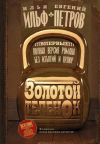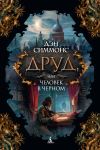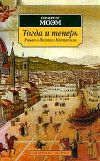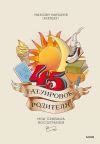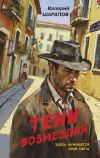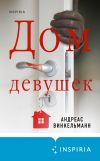Текст книги "Лучшие любовные истории / The Best Love Stories"
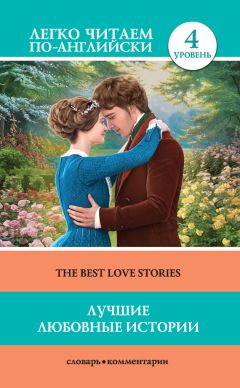
Автор книги: Томас Гарди
Жанр: Иностранные языки, Наука и Образование
Возрастные ограничения: +12
сообщить о неприемлемом содержимом
Текущая страница: 1 (всего у книги 7 страниц) [доступный отрывок для чтения: 2 страниц]
Лучшие любовные истории / The Best Love Stories
Составление, подготовка текста, комментарии и словарь Е. В. Глушенковой
© ООО «Издательство АСТ»
Rappachini’s Daughter
After Nathaniel Hawthorne (1804–1864)
A young man, named Giovanni Guasconti, came, very long ago, from the more southern region of Italy, to pursue his studies at the University of Padua. Giovanni, who did not have very many gold ducats in his pocket, took lodgings in a high and gloomy room of an old house which looked worthy to have been the palace of a Paduan noble, in fact, a family mansion. Being heartbroken, which was natural to a young man for the first time out of his native places, Giovanni sighed heavily as he looked around the empty and ill-furnished apartment.
“Holy Virgin,[1]1
Holy Virgin – Пресвятая Дева
[Закрыть] signor!” cried old Signora Lisabetta, who, won by the youth’s remarkable beauty, was kindly trying to give the room a habitable air.[2]2
a habitable air – жилой вид
[Закрыть] “Why should[3]3
Why should – c какой стати
[Закрыть] a young man sigh like that? Do you find this old mansion gloomy? Then, put your head out of the window, and you will see as bright sunshine as you have left in Naples.”
Guasconti mechanically did as the old woman advised, but could not quite agree with her that the Paduan sunshine was as cheerful as that of southern Italy. Such as it was, however, it fell upon a garden beneath the window with a variety of plants, which seemed to have been cultivated with exceeding care.[4]4
which seemed to have been cultivated with exceeding care – которые, по-видимому, очень заботливо возделывались
[Закрыть]
“Does this garden belong to the house?” asked Giovanni.
“No; that garden is cultivated by the own hands of Signor Giacomo Rappaccini, the famous doctor, who has been heard of as far as Naples. It is said that he turns these plants into medicines that are as strong as a charm. Often you may see the signor doctor at work, and perhaps the signora, his daughter, too, gathering the flowers that grow in the garden,” answered old Lisabetta.
The old woman had now done what she could to make the room look better; and left.
Giovanni looked down into the garden beneath his window. From its appearance, he judged it to be one of those botanic gardens which had been in Padua earlier than anywhere in Italy or in the world. Or, probably, it might once have been the garden of a rich family; for there was the ruin of a marble fountain in the centre, but so shattered that it was impossible to see the original design from the chaos of remaining fragments. The water, however, continued to sparkle in the sun. All about the pool into which the water fell grew various plants, that seemed to require plenty of moisture for the gigantic leaves and gorgeous flowers. There was one shrub in particular, set in a marble vase in the middle of the pool, that had purple blossoms, each of which seemed bright enough to illuminate the garden. Every portion of the garden had plants and herbs, carefully cultivated.
While Giovanni stood at the window he heard a rustling behind a screen of leaves, and became aware that a person was at work in the garden. His figure soon came into view. It was a tall, emaciated, and sickly-looking man, dressed in a scholar’s black cloak. He was elderly, with gray hair, a thin, gray beard, and a face singularly marked with intellect, but which could never, even in his more younger days, have expressed much warmth of heart.
This scientific gardener examined every shrub with great care: it seemed as if he was looking into their nature, and discovering why one leaf grew in this shape and another in that, and why such and such flowers differed among themselves in color and perfume. Nevertheless, in spite of his deep interest, there was no intimacy between himself and these plants. On the contrary, he avoided their actual touch or the direct inhaling of their odors with a caution that impressed Giovanni most disagreeably. The man behavior was as if he was walking among savage beasts, or deadly snakes, or evil spirits, which, should he allow them one moment of license, would wreak upon him some terrible fatality. The young man was frightened to see such an attitude in a person cultivating a garden, the most simple and innocent of human actions. Was this garden, the Eden of the present world? And this man, seeing harm in what his own hands grew, – was he the Adam?
The gardener, while plucking away the dead leaves or pruning the shrubs, defended his hands with a pair of thick gloves. When he came to the magnificent plant that hung its purple blossoms beside the marble fountain, he placed a mask over his mouth and nose. Finding his task still too dangerous, he drew back, and called loudly, “Beatrice! Beatrice!”
“Here am I, my father. What do you want?” cried a rich and young voice from the window of the opposite house. “Are you in the garden?”
“Yes, Beatrice,” answered the gardener, “and I need your help.”
Soon there emerged from under a portal the figure of a young girl, dressed with taste like a flower, beautiful as the day. She looked full of life, health, and energy. Yet Giovanni looked down into the garden; he had an impression as if here was another flower, as beautiful as other flowers, more beautiful than the richest of them, but still to be touched only with a glove, not to be approached without a mask. As Beatrice came down the garden path, he saw her inhale the odor of several of the plants which her father had avoided.
“Here, Beatrice,” said the father, “much work must be done to our chief treasure. Yet, I am not strong enough for it. I fear, this plant must be consigned to your sole charge.[5]5
this plant must be consigned to your sole charge – это растение нужно полностью вверить твоим заботам
[Закрыть]”
“And will gladly I do it,” cried again the rich tones of the young lady, as she came up to the magnificent plant and opened her arms as if to embrace it. “Yes, my sister, it will be Beatrice’s task to serve you; and you will reward her with your kisses and perfumed breath.”
Then, with all the tenderness in her manner, she took care of the plant.
In the morning, Giovanni’s first movement was to throw open the window and gaze down into the garden which had seemed so mysterious in the previous evening. He was surprised and a little ashamed to find how real and matter-of-fact the garden proved to be.[6]6
the garden proved to be – оказался сад
[Закрыть] The young man was happy that, in the heart of the city, he had the privilege of enjoying this place of lovely vegetation. Neither Dr. Giacomo Rappaccini, nor his brilliant daughter, were now visible.
On that day he paid a visit to Signor Pietro Baglioni, professor of medicine in the university, a physician of eminent reputation to whom Giovanni had brought a letter of introduction.[7]7
a letter of introduction – рекомендательное письмо
[Закрыть] The professor was an elderly person, apparently good-natured. He kept the young man to dinner, and they had a very nice conversation, especially when warmed by wine. Giovanni, thinking that men of science, living in the same city, must be familiar with one another, mentioned the name of Dr. Rappaccini. But the professor did not respond with so much cordiality as he had expected.
“It will not do[8]8
it will not do – не годится
[Закрыть] for a teacher of the art of medicine,” said Professor Pietro Baglioni, in answer to a question of Giovanni, “not to respect such a well-known physician as Rappaccini; but, on the other hand,[9]9
оn the other hand – с другой стороны
[Закрыть] I should not permit a worthy young man like you, Signor Giovanni, the son of an old friend, to get wrong ideas. Dr. Rappaccini has as much science as any member of the faculty in Padua, or all Italy; but there are certain grave objections to his professional character.”
“And what are they?” asked the young man.
“Has my friend Giovanni any disease of body or heart, that he is so interested in physicians?” said the professor, with a smile. “But as for Rappaccini, it is said of him – and I, who know the man well, can answer for its truth – that he cares more for science than for man. His patients are interesting to him only as subjects for some new experiment. He would sacrifice human life, his own among others for the sake of adding a grain to his accumulated knowledge.”
“I think he is an awful man,” remarked Guasconti. “Are there many men capable of such a love of science?”
“God forbid,[10]10
God forbid – Боже упаси
[Закрыть]” answered the professor. “It is his theory that all medicinal virtues are in those substances which we call vegetable poisons. He cultivates them with his own hands, and they say he has even produced new varieties of poison. Now and then,[11]11
now and then – время от времени
[Закрыть] he has effected a marvellous cure;[12]12
has effected a marvellous cure – добился чудесного исцеления
[Закрыть] but such instances of success, – to my mind, are probably the work of chance – but he should be responsible for his failures, which may justly be considered his own work.”
“I do not know, most learned professor,” said Giovanni, – “how dearly this physician may love his art; but there is one object more dear to him. He has a daughter.”
“Aha!” cried the professor, with a laugh. “So now our friend Giovanni’s secret is out. You have heard of this daughter, whom all the young men in Padua are wild about, though not half a dozen have ever had a chance to see her face. I know little of the Signora Beatrice save that Rappaccini is said to have instructed her deeply in his science, and that she already can fill a professor’s chair. Perhaps her father is preparing her for mine!”
Guasconti returned to his lodgings a little heated with the wine he had drunk, and which caused his brain to swim with strange fantasies about Dr. Rappaccini and the beautiful Beatrice. On his way he bought a bouquet of flowers.
Going up to his room, he seated himself near the window, so that he could look down into the garden with little risk of being discovered. In the sunshine, the strange plants were now and then nodding gently to one another. In the middle, by the shattered fountain, grew the magnificent shrub, with its purple flowers all over it; they looked back again out of the pool. At first there was nobody in the garden. Soon, however, – as Giovanni had half hoped, half feared – a figure appeared beneath the portal, and came down between the rows of plants, inhaling their various perfumes as if she were one of those beings of an old tale that lived upon sweet odors. On seeing Beatrice again, the young man was startled how much her beauty exceeded his recollection of it; so brilliant, its character was so vivid. Seeing her face better than on the former occasion, he was struck by its sweetness. He observed, or imagined, an analogy between the beautiful girl and the gorgeous shrub that hung its wonderful flowers over the fountain, – probably due to the color of her dress.
Approaching the shrub, she threw open her arms, and embraced its branches.
“Give me your breath, my sister,” exclaimed Beatrice; “for I am faint with common air. And give me this flower of yours, which I shall place close beside my heart.”
With these words the beautiful daughter of Rappaccini plucked one of the richest blossoms of the shrub, and was about to fasten it in her bosom.[13]13
and was about to fasten it in her bosom – и уже собиралась приколоть его себе на грудь. Оборот ‘to be about to do smth’ означает, что действие не было выполнено.
[Закрыть] But now a singular incident occurred. A small orange-colored lizard was running along the path, just at the feet of Beatrice. It appeared to Giovanni, – but, at the distance from which he looked, he could scarcely see anything so small, – it appeared to him, however, that a drop or two of moisture from the broken stem of the flower fell upon the lizard’s head. For an instant the lizard started violently, and then lay motionless in the sunshine. Beatrice observed this remarkable phenomenon and crossed herself, sadly, but without surprise; nor did she hesitate to fasten the fatal flower in her bosom. Giovanni shrank back and trembled.
“Am I awake? Am I sane?” said he to himself. “What is this being? Shall I call her beautiful or terrible?”
Beatrice now walked through the garden, approaching closer beneath Giovanni’s window, so that he could see her quite well. At this moment there came a beautiful insect over the garden wall; it had, perhaps, been attracted from the city by the heavy perfumes of Dr. Rappaccini’s shrubs. Without sitting on the flowers, it flew to Beatrice, and lingered in the air above her head. Now, while Beatrice was gazing at the insect with childish delight, it grew faint and fell at her feet; it was dead – from no cause that he could see, unless it was the atmosphere of her breath. Again Beatrice crossed herself and sighed heavily as she bent over the dead insect.
An impulsive movement of Giovanni drew her eyes to the window. There she saw the beautiful head of the young man – rather a Grecian than an Italian head, with regular features, and golden hair – gazing down upon her. Scarcely knowing what he did, Giovanni threw down the bouquet which he had held in his hand.
“Signora,” said he, “Wear them for the sake of Giovanni Guasconti.”
“Thanks, signor,” replied Beatrice, with her rich voice, that sounded like music. “I accept your gift, and would reward you with this precious purple flower; but if I throw it into the air it will not reach you. So Signor Guasconti must content himself with my thanks.”
She lifted the bouquet from the ground, and then passed through the garden. But few as the moments were,[14]14
but few as the moments were – но как бы быстро всё ни произошло
[Закрыть] it seemed to Giovanni, when she was entering the portal, that his beautiful bouquet was already beginning to fade in her hand.
For many days after this incident the young man avoided the window that looked into Dr. Rappaccini’s garden, as if he could see something ugly and monstrous there. The wisest thing to do would be, if his heart were in any real danger, to leave his lodgings and Padua at once. But Guasconti had not a deep heart; but he had a quick fancy, and a southern temperament, which rose every instant to a higher pitch. Whether or no Beatrice possessed that fatal breath, that Giovanni had witnessed, she had got a fierce poison into his system. It was not love, although her rich beauty was a madness to him; nor horror; but a wild mixture of both love and horror. Giovanni did not know what to fear; still less did he know what to hope; yet hope and fear kept a warfare in his heart.
Sometimes he had a walk through the streets of Padua or beyond its gates. One day he felt his arm seized by a person, who had recognized the young man.
“Signor Giovanni! Stay, my young friend!” cried he. “Have you forgotten me? That might happen if I were as much changed as you are.”
It was Baglioni, whom Giovanni had avoided ever since their first meeting, fearing that the professor would look too deeply into his secrets.
“Yes; I am Giovanni Guasconti. You are Professor Pietro Baglioni. Now let me pass!”
“Not yet, not yet, Signor Giovanni Guasconti,” said the professor, smiling, but at the same time watching the young man closely. “Didn’t I grow up side by side with your father? and shall his son pass me like a stranger in these old streets of Padua? Stand still, Signor Giovanni; for we must have a word or two before we part.”
Now, while they were speaking there came a man in black along the street, moving like a person in poor health. His face wore an expression of such active intellect that an observer might easily overlook his physical weakness and see only this wonderful energy. As he passed, this person exchanged a cold salutation with Baglioni, but fixed his eyes upon[15]15
fixed his eyes upon – остановил взгляд на
[Закрыть] Giovanni. Nevertheless, his look did not show any human interest in the young man.
“It is Dr. Rappaccini!” whispered the professor when the stranger had passed. “Has he ever seen your face before?”
“Not that I know,” answered Giovanni, starting at the name.
“He HAS seen you! he must have seen you![16]16
must have seen you – должно быть, он видел вас
[Закрыть]” said Baglioni. “For some purpose or other, this man of science is making a study of you. I know that look of his! It is the same as he bends over a bird, a mouse, or a butterfly, which, in some experiment, he has killed by the perfume of a flower; a look as deep as Nature itself, but without Nature’s warmth of love. Signor Giovanni, you are the subject of one of Rappaccini’s experiments!”
“Will you make a fool of me?” cried Giovanni, passionately.
“I tell you, my poor Giovanni, that Rappaccini has a scientific interest in you. You have fallen into terrible hands! And the Signora Beatrice, – what part does she act in this mystery?”
But Guasconti, finding Baglioni intolerable, broke away, and was gone before the professor could again seize his arm. He looked after the young man and shook his head.
“This must not be,” said Baglioni to himself. “He is the son of my old friend, and must not suffer from any harm from which the medical science can preserve him. Besides, why should Rappaccini take the boy out of my own hands, as I may say, and use him for his experiments. This daughter of his! It shall be looked to![17]17
It shall be looked to! – Этим необходимо заняться!
[Закрыть]”
Giovanni, after a short walk, found himself at the door of his lodgings. As he crossed the threshold he was met by old Lisabetta, who smiled, and was evidently eager to attract his attention.
“Signor! signor!” whispered she. “Listen, signor! There is a private entrance into the garden!”
“What do you say?” exclaimed Giovanni, turning quickly about. “A private entrance into Dr. Rappaccini’s garden?”
“Hush! hush! not so loud!” whispered Lisabetta, putting her hand over his mouth. “Yes; into the doctor’s garden, where you may see all his fine plants. Many young men in Padua would give gold to be admitted among those flowers.”
Giovanni put a piece of gold into her hand.
“Show me the way,” said he.
His conversation with Baglioni made him think that this might be connected with the intrigue, in which Dr. Rappaccini was involving him. But such a suspicion, though it disturbed Giovanni, it did not stop him. The instant that he was aware of the possibility of approaching Beatrice, it seemed necessary to do so. It did not matter whether she were angel or demon; he was within her sphere; and yet, strange to say, there came across him a sudden doubt whether this intense interest was really so deep and positive; whether it was not the fantasy of a young man.
He paused, hesitated, but again went on. His guide led him to a door, through which, as it was opened, he saw leaves, and sunshine glimmering among them. Giovanni stepped and stood beneath his own window in Dr. Rappaccini’s garden.
He looked around the garden to discover if Beatrice or her father were present, and, seeing that he was alone, began a critical observation of the plants.
The look of them dissatisfied him; their gorgeousness seemed fierce, passionate, and even unnatural. Several also might shock one by an artificial appearance indicating that there had been a mixture of various vegetable species, that the production was no longer of God’s making, but of man’s fancy. They were probably the result of experiment. Giovanni recognized two or three plants that he knew to be poisonous. While busy with these thoughts he heard the rustling of a silk dress and, turning, saw Beatrice emerging from beneath the portal.
She came along the path and met him near the broken fountain. There was surprise in her face, but also a simple and kind expression of pleasure.
“You are a connoisseur in flowers, signor,” said Beatrice, with a smile, meaning the bouquet which he had thrown her from the window. “It is no marvel, therefore, if you have come to take a nearer view of my father’s rare collection. If he were here, he could tell you many strange and interesting facts as to the nature and habits of these shrubs; for he has spent a lifetime in such studies, and this garden is his world.”
“And yourself, lady,” observed Giovanni, “they say, – you are skilled in growing plants with these rich blossoms and these perfumes. If you were my instructress, I should be a better pupil than if taught by Signor Rappaccini himself.”
“Do they say so?” asked Beatrice, with a pleasant laugh. “Do people say that I am skilled in my father’s science of plants? No; though I have grown up among these flowers, I know no more of them than their color and perfume. Signor, do not believe these stories about my science.”
“And must I believe all that I have seen with my own eyes?” asked Giovanni, while the recollection of former scenes made him shrink.
“Forget what you may have fancied about me. But the words of Beatrice Rappaccini’s lips are true. You may believe them.”
While she spoke there was a fragrance in the atmosphere around her, rich and delightful. Could it be Beatrice’s breath which had the odor of the flowers? Giovanni felt faint for an instant.
Beatrice asked Giovanni about his distant home, his friends, his mother, and his sisters. He was surprised that he was walking side by side with the girl, whom he had idealized in such terror, in whom he had witnessed such dreadful abilities, – that he was talking with Beatrice like a brother, and found her so human and so womanly.
They came to the shattered fountain, beside which grew the magnificent shrub, with its purple blossoms. There was a fragrance around it which Giovanni recognized as identical with that of to Beatrice’s breath, but more powerful. As her eyes fell upon it, Giovanni saw her press her hand to her bosom.
“For the first time in my life,” murmured she, addressing the shrub, “I had forgotten you.”
“I remember, signora,” said Giovanni, “that you once promised to reward me with one of these living treasures for the bouquet which I threw to your feet. Let me now pluck it to remember this interview.”
He made a step towards the shrub; but Beatrice rushed forward, with a shriek that went through his heart like a dagger. She caught his hand and drew it back.
“Do not touch it!” exclaimed she, in a voice of agony. “It is fatal!”
Then, she fled from him and disappeared beneath the portal. As Giovanni followed her with his eyes, he saw Dr. Rappaccini, who had been watching the scene, he did not know how long, within the shadow of the entrance.
No sooner was Guasconti alone in his room than[18]18
no sooner was Guasconti alone in his room than – как только Гасконти оказался один в своей комнате
[Закрыть] the image of Beatrice came back to his mind. She was human, gentle and womanly; she was capable of the heroism of love. Her frightful abilities were now either forgotten, or, even made her more unique. What had looked ugly was now beautiful; or it hid itself among other half ideas at the back of his mind.[19]19
at the back of his mind – в глубине души
[Закрыть] Thus did he spend the night. Up rose the sun, and the young man woke up with pain in his hand – in his right hand – the very hand which Beatrice had taken in her own when he was about to pluck one of the purple flowers. On the back of that hand there was now a purple print like that of four small fingers, and the print of a thumb upon his wrist.
Oh, how stubbornly does love hold its faith until the moment comes when it cannot do so any more! Giovanni wrapped a handkerchief about his hand and wondered what insect had stung him, and soon forgot his pain thinking of Beatrice.
After the first interview, there was a second. A third; a fourth; and a meeting with Beatrice in the garden was no longer an incident in Giovanni’s daily life, but the space in which he lived. Nor was it otherwise[20]20
nor was it otherwise – так же обстояло дело и
[Закрыть] with the daughter of Rappaccini. She waited for the young man’s appearance. If, by any chance, he failed to come at the appointed moment, she stood beneath the window and sent up her rich voice: “Giovanni! Giovanni! Come down!” And down he went into that Eden of poisonous flowers.
But there was still such a reserve in Beatrice’s behavior, that the idea of breaking through it scarcely occurred to his mind. They loved; their eyes conveyed the holy secret from one soul to the other; and yet there had been no touch of lips, or hands. He had never touched one of the ringlets of her hair or dress – so great was the physical barrier between them. On the few occasions when Giovanni was about to overstep the limit, Beatrice grew so sad, that not a word was necessary to stop him. At such times he was startled at the horrible suspicions that rose, monster-like, in his heart; his love grew thin and faint as the morning mist. But, when Beatrice’s face brightened again, she was no longer the mysterious, questionable being whom he had watched with so much horror; she was now the beautiful girl whom he knew.
A considerable time had now passed since Giovanni’s last meeting with Baglioni. One morning, however, he was unpleasantly surprised by a visit from the professor, whom he had scarcely thought of for whole weeks, and would gladly forget still longer. He could tolerate no companions except those having sympathy with his present feeling. Such sympathy was not to be expected from Professor Baglioni.
The visitor talked carelessly for a few moments about the gossip of the city and the university, and then took up another topic.
“I have been reading an old classic author lately,” said he, “and met with a story that strangely interested me. Possibly you may remember it. It is of an Indian prince, who sent a beautiful woman as a present to Alexander the Great. She was as lovely as the dawn and gorgeous as the sunset; but what was special about her was a certain rich perfume in her breath – richer than a garden of Persian roses. Alexander fell in love at first sight with this magnificent stranger; but a physician, happening to be present,[21]21
happening to be present – который случайно оказался там
[Закрыть] discovered a terrible secret of her.”
“And what was that?” asked Giovanni, turning his eyes down to avoid those of the professor.
“That this lovely woman,” continued Baglioni, “had been fed with poisons from her birth upward,[22]22
from her birth upward – с момента рождения
[Закрыть] until her whole body was so full of them that she herself had become the deadliest poison in the world. Poison was her element of life. With the rich perfume of her breath she poisoned the very air. Her love would have been poison – her embrace death. Is not this a marvellous tale?”
“A childish tale,” answered Giovanni, nervously starting from his chair. “I marvel how you, Professor, find time to read such nonsense among your studies.”
“By the way,” said the professor, looking about him, “what singular fragrance is this in your apartment? Is it the perfume of your gloves? It is faint, but delicious; and yet, after all, not pleasant. Were I to breathe it long,[23]23
were I to breathe it long – если бы мне долго пришлось вдыхать его
[Закрыть] I think it would make me ill. It is like the breath of a flower; but I see no flowers in the room.”
“There are not any,” replied Giovanni, who had turned pale as the professor spoke; “I do not think, there is any fragrance except in your imagination. The recollection of a perfume, the idea of it, may easily be mistaken for a present reality.”
“Ay; but my sober imagination does not often play such tricks,” said Baglioni. “Our friend Rappaccini, as I have heard, makes medicines with rich odors. Doubtless, the learned Signora Beatrice would give her patients draughts as sweet as a girl’s breath; but woe to him that sips them![24]24
but woe to him that sips them – но горе испившему от них
[Закрыть]”
Giovanni’s face showed many emotions. The tone in which the professor spoke of the lovely daughter of Rappaccini was hard for him to hear; and yet the view of her character opposite to his own gave way to a thousand suspicions. But he tried hard not to pay attention to them and to respond to Baglioni with a true lover’s perfect faith.
“Signor professor,” said he, “you were my father’s friend; perhaps, too, you want to behave like a true friend of his son. I should feel nothing towards you save respect; but, signor, there is one subject on which we must not speak. You do not know the Signora Beatrice.”
“Giovanni! my poor Giovanni!” answered the professor, with an expression of pity, “I know this girl better than yourself. You must hear the truth about the poisoner Rappaccini and his poisonous daughter; yes, as poisonous as she is beautiful. Listen; for, even should you do violence to my gray hairs, it shall not silence me.[25]25
even should you do violence to my gray hairs, it shall not silence me – даже если вы станете оскорблять мои седины, это не заставит меня замолчать
[Закрыть] That old tale of the Indian woman has become a truth by the deadly science of Rappaccini and in the person of the lovely Beatrice.”
Giovanni hid his face.
“Her father’s natural love for his child,” continued Baglioni, “did not stop him from making her the victim of his insane zeal for science; for, let us do him justice,[26]26
let us do him justice – давайте отдадим ему должное
[Закрыть] he is as true a man of science. What, then, will be your fate? Beyond a doubt you are selected as the material of some new experiment. Perhaps the result is to be death; perhaps a fate more awful still. Rappaccini, with what he calls the interest of science, will hesitate at nothing.”
“It is a dream,” murmured Giovanni to himself; “it must be a dream.”
“But,” said the professor, “cheer up, son of my friend. It is not yet too late for the rescue. Possibly we may even bring back this miserable child within the limits of ordinary nature, from which her father’s madness has taken her. Look at this little silver vase! It was made by the hands of the famous Benvenuto Cellini,[27]27
Benvenuto Cellini – Бенвенуто Челлини (1500–1574) – итальянский скульптор и ювелир.
[Закрыть] and is worthy to be a love gift to the most beautiful girl in Italy. But its contents are invaluable. One little sip of this antidote would make the most virulent poisons of the Borgias[28]28
poisons of the Borgias – яды Борджиа – имеются в виду папа римский Александр Борджиа (1431–1508) и его сын Чезаре (1476–1507), которые в борьбе со своими политическими противниками широко применяли отравления.
[Закрыть] harmless. I do not doubt that it will be as effective against those of Rappaccini. Give the vase to your Beatrice, and wait for the result.”
Baglioni put a small silver vase on the table and went out, leaving what he had said to produce its effect upon the young man’s mind.
“We will fight Rappaccini,” thought he, as he went down the stairs; “but, to tell the truth of him, he is a wonderful man – a wonderful man not to be tolerated by those[29]29
a wonderful man not to be tolerated by those – замечательный человек, которого не должны терпеть те
[Закрыть] who respect the good old rules of the medical profession.”
As long as Giovanni had known Beatrice, he had had some doubts as to her character; yet she seemed to him such a simple and natural girl, that the image now held up by Professor Baglioni looked strange and incredible. True, he could not quite forget the bouquet that faded in her hands, and the insect killed in the air by the fragrance of her breath. These incidents, however, were now taken as mistaken fantasies. There is something truer and more real than what we can see with the eyes and touch with the finger. On such better evidence had Giovanni built his faith in Beatrice. But now he was not able to stay at the height to which the early enthusiasm of passion had raised him; he fell down, suffering from doubts. Not that he gave her up; he did but distrust.[30]30
not that he gave her up; he did but distrust – не то, чтобы он отказался от неё, но он перестал доверять ей
[Закрыть] He decided to make a test that would satisfy him, once for all,[31]31
once for all – один раз и навсегда
[Закрыть] whether there was something dreadful in her physical nature and something monstrous in her soul. His eyes, gazing down afar, might have deceived him as to the lizard, the insect, and the flowers; but if he could witness, at the distance of a few steps, the sudden fading of one fresh flower in Beatrice’s hand, there would be room for no further question.[32]32
there would be room for no further question – не останется места для дальнейших сомнений
[Закрыть] With this idea he bought a bouquet of fresh flowers cut only that morning.
Правообладателям!
Данное произведение размещено по согласованию с ООО "ЛитРес" (20% исходного текста). Если размещение книги нарушает чьи-либо права, то сообщите об этом.Читателям!
Оплатили, но не знаете что делать дальше?











